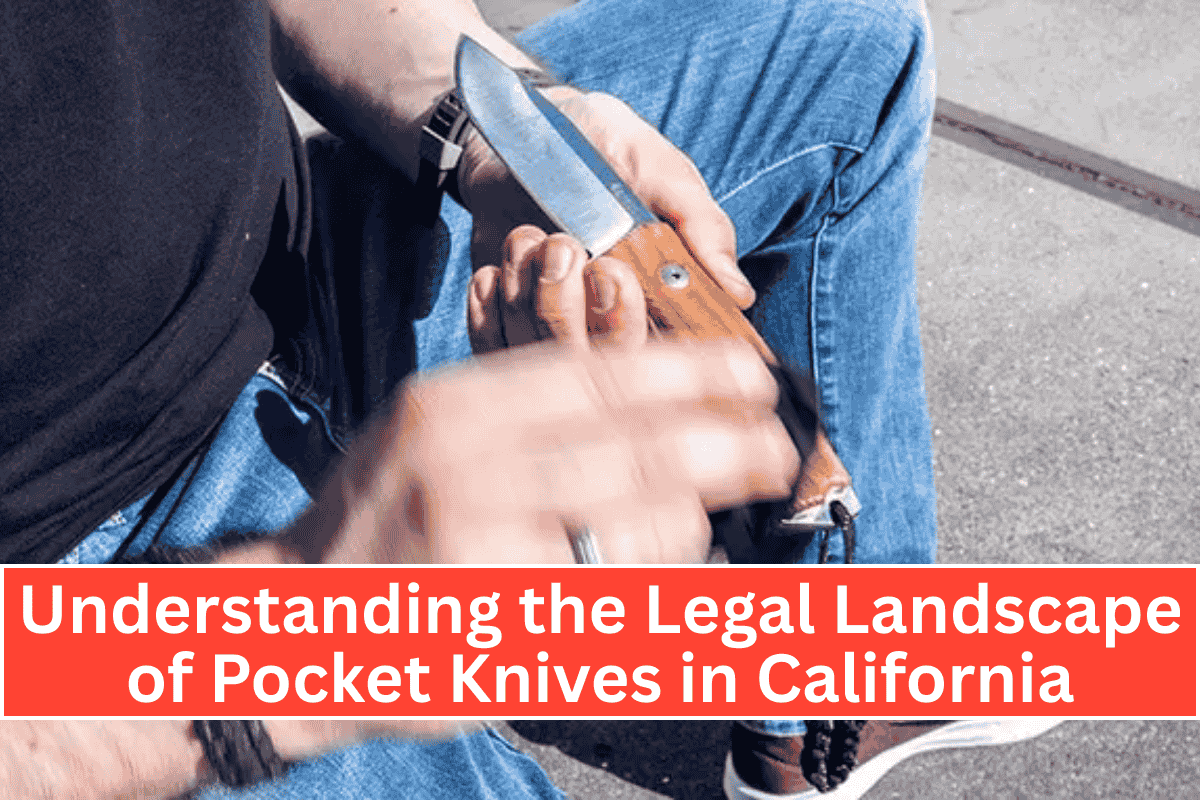California has some of the most detailed and specific knife laws in the United States. Whether you’re a resident or a visitor, understanding these regulations is important to avoid facing penalties.
This guide will provide a thorough look at the state’s knife laws, including restrictions on ownership, carrying, and usage, with a focus on areas like Glendale and Los Angeles.
Legal vs. Illegal Knives in California
California law distinguishes between different types of knives, and knowing what is legal and illegal can help you avoid serious legal consequences.
Legal Knives
Folding Knives: These are legal as long as they are carried in the closed position. They are generally not considered a threat if kept securely folded when not in use.
Pocket Knives: Also legal, provided they do not have an automatic deployment feature, such as spring-assisted opening or automatic knives. These are often used for everyday tasks, so long as they don’t have a blade longer than 2.5 inches, they typically don’t raise legal concerns.
Fixed-Blade Knives: These can be carried openly in most cases but cannot be concealed. Fixed-blade knives are more restrictive when it comes to concealed carry.
Illegal Knives
Switchblades: These knives open automatically when a button or lever is pressed, and are illegal in California if the blade is longer than 2 inches. Switchblades are considered dangerous weapons and are highly restricted.
Ballistic Knives: These are completely banned under California law. Ballistic knives are knives with a blade that can be launched from the handle, and they are illegal to own, possess, or carry.
Dirks & Daggers: While dirks and daggers are legal to carry openly, they cannot be carried concealed. Concealed carrying of these knives is a criminal offense.
Knives Disguised as Other Objects: Knives disguised as items like belt buckles or walking canes (e.g., cane swords) are illegal, as they can be used to hide the knife from detection.
Carrying Restrictions in California
The legality of carrying certain knives in California depends on whether the knife is carried openly or concealed. Additionally, knives may be restricted in specific public spaces such as government buildings and public transportation.
Open Carry
Fixed-blade knives must be carried openly. Concealing them could result in legal trouble.
Concealed Carry
Dirks and daggers are illegal to carry concealed, but are allowed to be carried openly. Carrying them in your bag or hidden on your person is considered a violation of the law.
Public Property Restrictions
Knives are often restricted in government buildings, schools, public transportation, and any other property that is considered public or private property restricted for security reasons.
Knife Laws Specific to Glendale & Los Angeles
While California has state-wide knife laws, individual cities like Glendale and Los Angeles have implemented stricter local ordinances.
Los Angeles: In LA, it’s illegal to carry any knife with a blade longer than 3 inches in public places, even if the knife is not considered a concealed weapon.
Glendale: Glendale has additional restrictions that apply to carrying knives in public parks and recreational spaces. These rules may be more stringent than those set at the state level.
Penalties for Violating California Knife Laws
Penalties for violating California’s knife laws can range from misdemeanors to felonies, depending on the offense.
Misdemeanor Offenses: Carrying an illegal knife can lead to a misdemeanor charge, which may result in up to 1 year in county jail.
Felony Offenses: More severe violations, such as carrying a knife with the intent to harm or using a knife in the commission of a crime, can result in felony charges. This may lead to significant prison time and hefty fines.
Can You Use a Knife for Self-Defense in California?
While self-defense is a legal right in California, using a knife in self-defense could still lead to legal consequences, depending on the situation.
Reasonable Force: You are allowed to use reasonable force if you believe you are in immediate danger of bodily harm. However, using a knife as a weapon in self-defense could be scrutinized by law enforcement, and whether the force was excessive or justified is a matter that would need to be decided in court.
Proportional Response: The law looks at whether your use of force was proportional to the threat. Using a knife in an altercation could lead to criminal charges if it’s deemed that your response was excessive for the situation.
California’s knife laws are complex and vary by city. It’s essential for residents and visitors to understand the restrictions and regulations around owning, carrying, and using knives in public spaces.
Violating these laws can result in fines, criminal charges, and even jail time. Always ensure that you are familiar with the local ordinances in places like Los Angeles and Glendale to avoid any legal complications.












